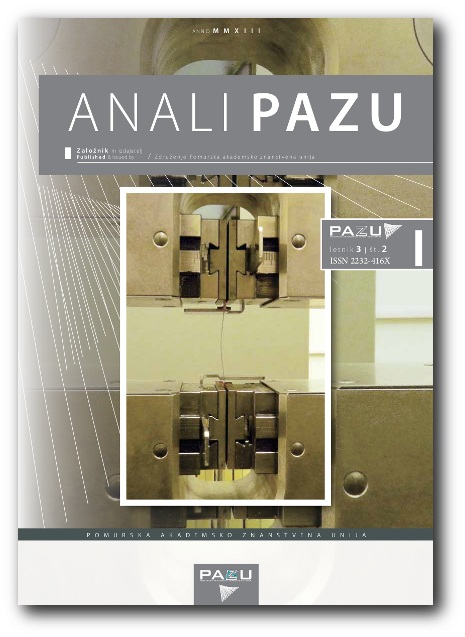Rapid prenatal detection of sex chromosome aneuploidies: the methodology and the verification
DOI:
https://doi.org/10.18690/analipazu.3.2.95-103.2013Keywords:
medical genetics, prenatal diagnostic, numerical chromosomal abnormalities, sex chromosomes, quantitative fluorescent polymerase chain reaction, QF-PCRAbstract
Quantitative fluorescent polymerase chain reaction (QF-PCR) is an established method for targeted, fast, reliable, and economically beneficial determination of common chromosomal abnormalities in prenatal diagnosis. The most common chromosomal abnormalities in prenatal genetics are trisomies of chromosomes 13, 18 and 21. In Laboratory of Medical Genetics, University Medical Centre Maribor, we use in-house developed QF-PCR testing for detecting them since 2008. Determination of the numerical changes in sex chromosomes X and Y is part of QF-PCR testing, when it is implemented as a separate test. The current guidelines of the British Association for Clinical Cytogenetics are recommending the use of QF-PCR testing for sex chromosomes only as targeted diagnostics at cases with reasonable suspicion of numerical abnormalities on sex chromosomes. In this paper we present QF-PCR methodology by using 9 additional sex chromosomes microsatellite genetic markers. It is based on the extension of in-house developed QF-PCR analysis, which involves the preparation of optimized combinations of primers, specific for the chromosome X and/or Y in order to carry out the optimal system for simultaneous polymerase chain reaction. For the validation analysis we used 23 cytogenetic well-defined patterns with the presence of different types of numerical variations of chromosomes X and Y. The results of the validation analysis are presented, the 100% matching was achieved.
